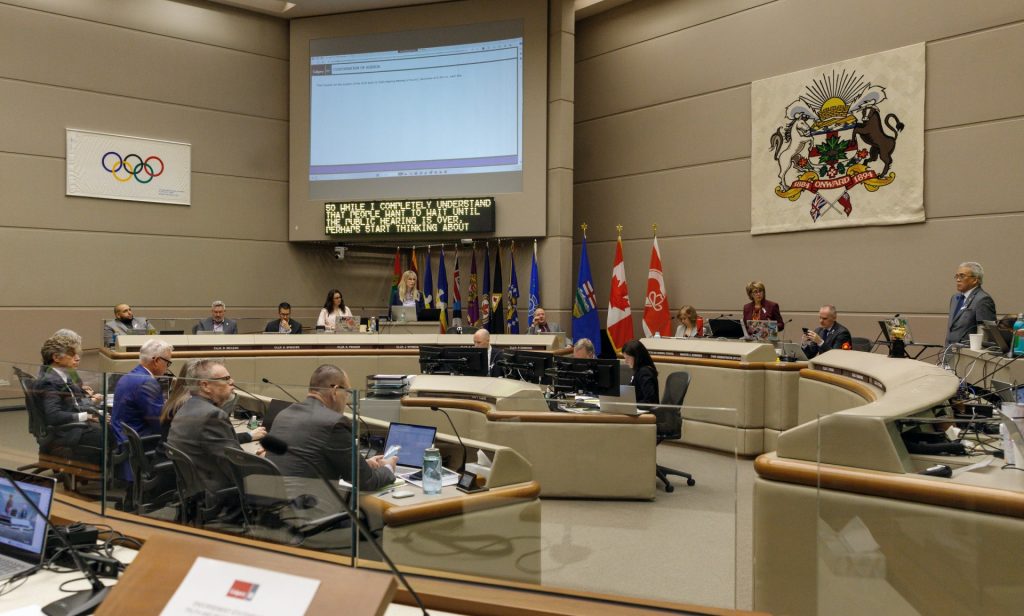Calgary Police Service has created ways to avoid Law Enforcement Review Board scrutiny: Alberta lawyer

Posted Dec 5, 2023 12:17 pm.
Last Updated Dec 5, 2023 1:09 pm.
An Alberta lawyer says the Calgary Police Service has a systemic problem when it comes to how it handles public complaints against officers.
Tom Engel is the chair of the policing committee for the Criminal Trial Lawyers Association.
“They have developed tactics to evade scrutiny by the Law Enforcement Review Board (LERB),” he told CityNews. “And how they do that is the chief will have a complaint investigated, and then will find that there is no basis for the complaint, and ‘Oh by the way it’s not even a complainant raising a serious issue — even though it may be a serious assault’ — and they are going to dispose of it under the provisions of the Police Act for non-serious matters where you cannot appeal to the LERB.”
The Calgary Police Service vehemently denies Engel’s claims.
“The Calgary Police Service operates within and under the Police Act and Police Service Regulation, and applies the criteria set out in the legislative scheme to determine whether a matter is “serious,” CPS said in a statement to CityNews. “The matter you refer to is, in fact, under appeal with the LERB following a disciplinary hearing which is only used for matters deemed by the chief to be serious.
“The CPS does not use any “tactics” to avoid judicial or LERB oversight.”
Engel’s comments stem from a story CityNews covered last week about a Calgary woman who won the right to appeal to the LERB.
Roopa Wickson says she received sexually-suggestive text messages from the detective in charge of her domestic conflict case that involved her ex-husband, who also worked with Calgary Police.
The chief ordered an internal investigation into the situation, which Wickson claims she was not made aware of, despite being the recipient of the messages and filing a formal complaint against the officer.
The officer, Det. David Keagan, was eventually ordered to forfeit 20 hours of work as a penalty, which Wickson described as ‘laughable,’ given the impact the incident has had on her.
In their decision, the LERB found the chief’s actions were “procedurally unfair.”
Engel said cases like Wickson’s can leave a huge dent in public trust.
“Can you imagine what she thinks of the Calgary Police Service right now? I mean she makes a complaint against her ex-husband who is a Calgary cop, and the Calgary Police Service investigates it,” he said. “That’s just bad on the face of it — the optics of that are bad.
“And then she gets these text messages from the cop that’s investigating it.”
He questions Chief Mark Neufeld’s handling of Wickson’s complaint, pointing to his previous work in the Arkinstall inquiry .
That 2018 inquiry centered around the 2008 arrest of Jason Arkinstall at a traffic stop, where video showed officers repeatedly hitting the man.
Concerns were raised about false testimony by police.
Back then, Engel served as council for the Criminal Trial Lawyers Association and Neufeld was the assistant director of ASIRT.
During the inquiry, Neufeld testified that “regular Albertans” would be uncomfortable with how the Arkinstall matter was dealt with.
“Neufeld should ask himself the same question about this,” Engel said. “If he talked to regular Albertans about how he dealt with this, what would they think?”
Neufeld also said during the Arkinstall inquiry that in his view, “there should be an independent third party or entity deciding how to handle incoming complaints, including serious and sensitive matters.”
Engel said he was impressed by Neufeld’s remarks back in 2018.
“I had really high hopes that he would reform things with the Calgary Police Service but they’ve been dashed,” he added. “He’s not walking his own talk, something happened.”
In response to inquiries by CityNews as to why Wickson’s complaint wasn’t investigated by someone outside the service, the Calgary Police Service said the decision whether or not to engage a third party is made considering every element of a case.
“The determination to request an outside agency investigate or review a file is made considering the entire context of a particular matter,” the CPS said in a statement. “The Calgary Police Service has robust accountability processes in place to ensure an objective and fair investigation, including the oversight of the LERB, the Calgary Police Commission, and the Alberta Director of Law Enforcement as applicable.”
Engel also questions why the officer involved in Wickson’s case wasn’t given a stronger penalty.
“Why wasn’t this guy at least busted back to constable?” he said.
Engel believes a lack of accountability for bad cop behavior can have longstanding effects on the police force.
“This is moral killing when good cops see bad cops not held accountable and even worse — promoted,” he said.
Police Act to change how complaints are investigated
Changes are on the way to the Police Act, beginning next year.
The amendments would mean all public complaints would be investigated through an independent body, the Police Review Commission, which the province says would end the current practice of “police investigating police.”
“Having a single provincial organization will also make the process easier to navigate for people who lodge complaints against police officers employed by a municipal police service or First Nations police service in Alberta,” public safety and emergency services press secretary Arthur Green said in a statement. “Discussions are continuing with the RCMP and Public Safety Canada about the Alberta RCMP’s potential involvement in the process.”
The Calgary Police Service said they look forward to working with the province on the development of the new police service regulations and the creation of the new Police Review Commission.
“We have long advocated for reform to the current Police Act to bring it more in line with modern policing and provide additional clarity for this complex, quasi-judicial disciplinary process, ” the CPS said.










